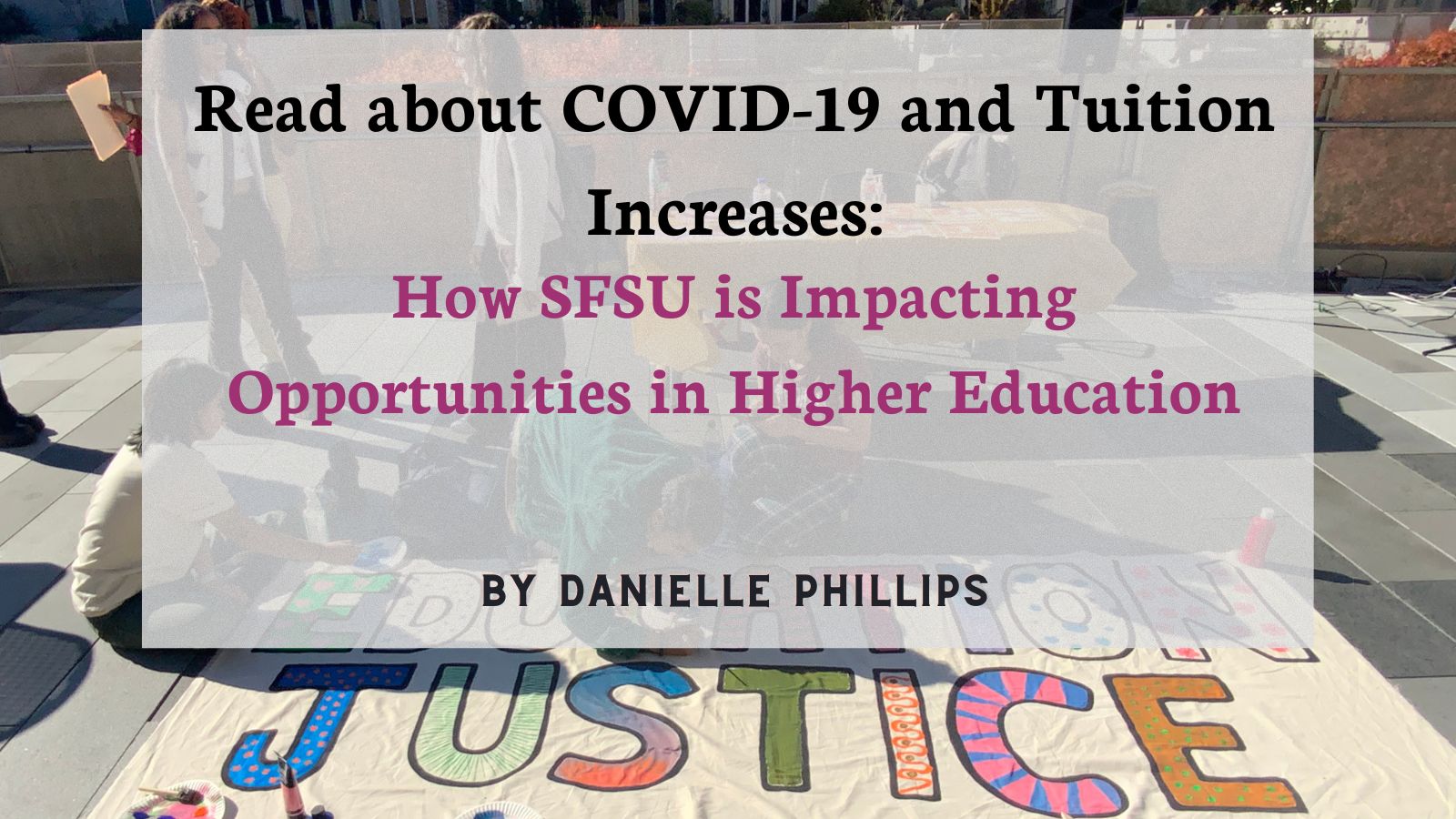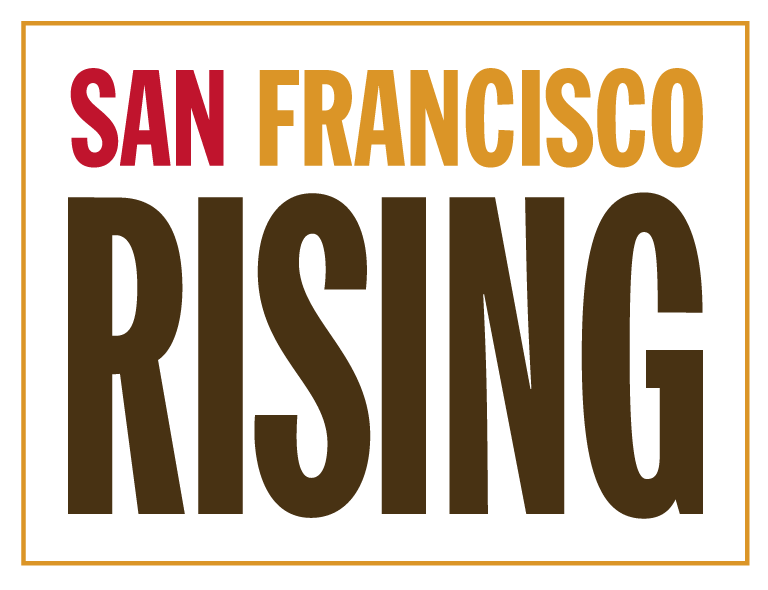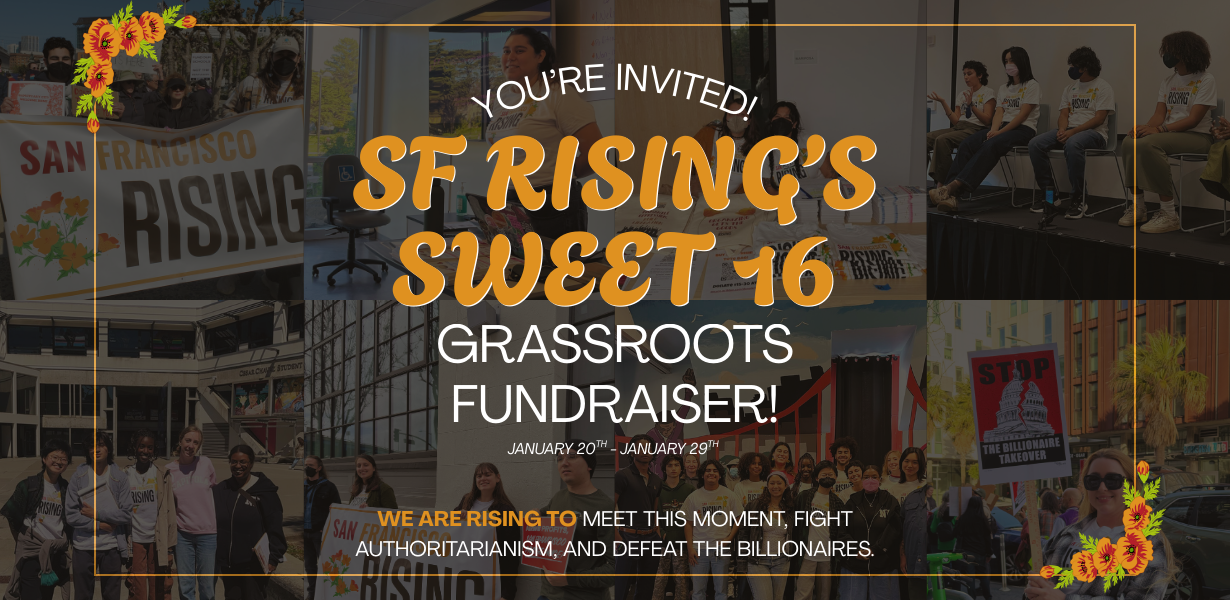written by Danielle Phillips
San Francisco State University is recognized for its commitment to creating opportunities for communities of color. The incentive to create a more equitable education experience came about in 1968 when students of color showed incredible feats of activism by leading a five-month strike against the university’s faculty, namely President Hayakawa, to create the college’s first accredited Ethnic Studies program. Since then, San Francisco State has continued to pursue providing resources for communities of color, a mark that is easily identified when looking over the student demographics. According to USNews, over 75% of San Francisco State’s registered student body identifies as persons of color. For reference, the nearby University of California San Francisco reports only 26% of their student body is part of an “Underrepresented Group.” Yet just as COVID-19 has impacted nearly every sector of society, it seems student enrollment in higher education has been no exception.
Following COVID-19, San Francisco State has continued to report student enrollment declines while increasing tuition per semester. More precisely, between Spring 2020 and Spring 2023, the student population at San Francisco State lost 3,454 students. The overwhelming majority of the students withdrawing are students of color, with over 2,500 students of color leaving the university in the three-year span. Yet while the college has acknowledged the declining numbers internally via generally-worded emails, it seems little is being said publicly about how increasing tuition and simultaneously offering fewer class options – such as hybrid or online-only classes – has had on its student body.
I recently chatted with Nikki Renee Phillips, another SFSU student, who is set to graduate this Spring with a B.A. in Anthropology. While speaking candidly about our experiences as mature students, Nikki opened my eyes to the reality of living in San Francisco and earning a degree. As someone who has been given assistance for housing due to disability, I was shocked to learn that she has had to take out loans in order to continue her college career. She is someone living below the median income in the city, yet her financial resources are severely limited. While I am grateful for her openness, the shortcomings surrounding opportunities in San Francisco were jarring.
However, the issue may be even greater than San Francisco State’s response to declining enrollment following the pandemic. As San Francisco is witnessing the fallout of tech companies, whose presence in the greater Bay Area has forced many long-time community members to be uprooted from their homes due to gentrification, it seems that little is being done on behalf of the city to actively reinvest into some of our most basic and necessary sectors for community well-being. As students work to regain a sense of normalcy in the classroom following a year’s worth of online schooling, one would anticipate growing pains, but what we are seeing is something deeper than that.
Yet one school, in particular, seems to be working to combat many of these educational barriers, as City College of San Francisco (CCSF) is proactively seeking new students with its current zero tuition policy. In a program called “Free City,” the college offers all San Francisco residents free classes to pursue an associate degree and/or transfer to a 4-year institution. It is a choice that certainly creates more accessibility for San Francisco residents, but more so, it is a decision that reinvests into San Francisco’s multifaceted communities. Something many of us in San Francisco would like to see more of. Coupled with CCSF’s ongoing free adult education programs, including programs for English learning, high school diploma assistance, and classes assisting people in preparing to take their citizenship tests, CCSF is providing a remarkable number of options for its community members. In a society that continues to show importance to higher levels of education, CCSF is one of the few paving the way for greater accessibility.
SF Rising was an integral part of creating the free tuition program at CCSF and our efforts to organize and mobilize community efforts surrounding education justice have shown the power we possess when we come together for a committed cause. As conversations surrounding canceling all student debt continue to be held, we encourage our affiliates to stay proactive in seeking opportunities to expand higher education access. By empowering our working-class families and communities of color, and creating larger scopes of resources for our student body, we can produce a more positive impact for future generations of San Francisco residents.




